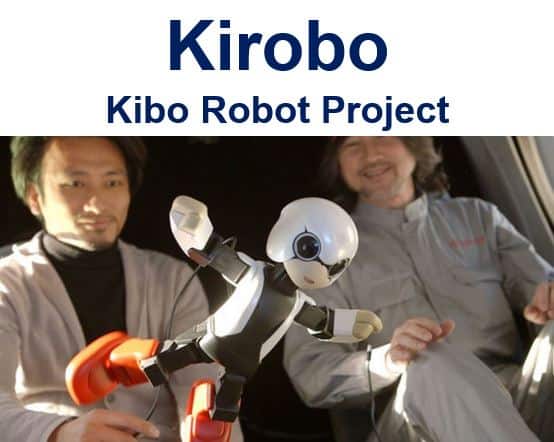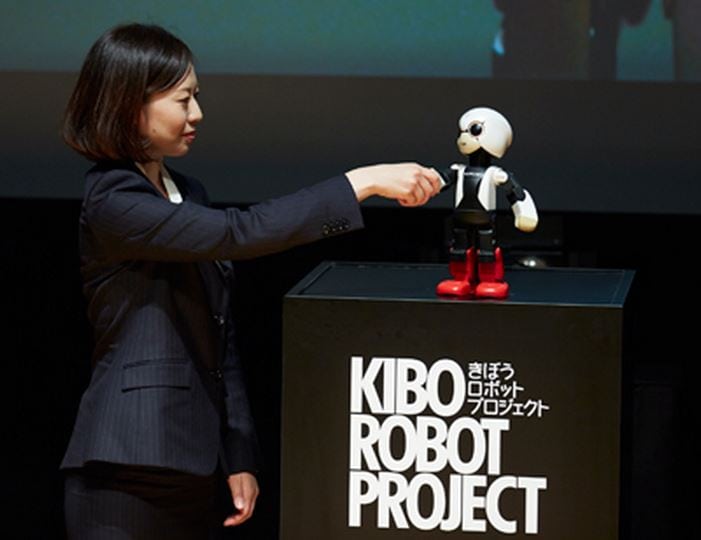Kirobo, a Japanese-speaking robot that keeps astronauts from feeling lonely, has won two Guinness World Record titles. It is the first ever companion robot in space, and has broken the altitude record for a robot having a conversation following an 18-month stay onboard the International Space Station.
Equipped with a state-of-the-art voice recognition system, the 1 kg, 34 cm tall robot can also recognize faces.
Kirobo can stabilize itself in a zero-gravity environments. It has a library of pre-set gestures and an impressive synthesized voice. Add to this its advanced language processing system, and you have a little robot that can chat in an uncannily natural manner.

Kirobo managed to stabilize itself in zero-gravity conditions. (Image: Kibo Robot Project)
Kirobo was developed as part of a 5-year collaboration between Toyota Motor Corporation, the Japan Aerospace Exploration Agency (JAXA), Robo Garage, the University of Tokyo’s Research Center for Advanced Science and Technology, and Dentsu.
A companion for astronauts with cabin fever
The robot makers wanted to determine whether the robot could provide psychological support for astronauts experiencing severe loneliness – especially those in space for a long time – by acting as a chatting companion.
Kirobo was taken into space on August 4th, 2013, in a HIIB rocket. Its mission was to be astronaut Koichi Wakata’s companion. It arrived at the ISS six days later, and gave its first speech within 11 days, with the phrase “On August 21, 2013, a robot took one small step toward a brighter future for all.”
On December 7th, 2013, at an altitude of 414.2 kilometers above the sea, Kirobo succeeded in having several meaningful conversations with Wakata, and for this won a Guinness World Record.
Kirobo was brought safely back to earth by the SpaceX CRS-5 Dragon cargo supply spacecraft on February 10, 2015, and was back in Japan on March 12th.

In Japan, Kirobo is a national hero. (Image: Guinness World Records)
Robot said the Earth “glowed”
When it arrived back in Japan, its first phrase was “From up above, the Earth glowed like a blue LED.”
To mark Kirobo’s and the scientific team’s achievement, Erika Ogawa, Vice President of Guinness World Records Japan, and Aya McMillan the official adjudicator, presented the scientists with Guinness World Record certificates during an event at Tokyo’s National Museum of Emerging Science and Innovation.
Yorichika Nishijima, Kirobo’s Communications Designer, said:
“The project launched five years ago, when nobody believed in human beings and robots co-existing. From that perspective we wanted to send it into space to show that robots and human beings… can go into a new era. It’s a sort of symbolic project so people can understand how people can interact with robots.”
Video – Kirobo’s and Wakata’s last words
